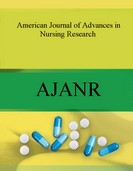Abstract
Title
EFFECTIVENESS OF STRUCTURED TEACHING PROGRAMME
ON PREVENTION OF NOSOCOMIAL INFECTION AMONG
NURSING STUDENTS IN SELECTED NURSING COLLEGE,
BANGALORE
Author
Dr. Tejeshwari B V, Aleena Soby , Arjun S, Gincy Varghese, Malavika M,
Rosaline Sonia P, Vaishnav K, Soma Mandal
Email
Tejeshwari@gmail.com
keyword
Effectiveness,
Knowledge, STP and
nosocomial infection
Abstract
A hospital -acquired infection also known as a nosocomial infection, is an
infection that is acquired in a hospital or other health care facility. To emphasize both
hospital and non-hospital setting, it is sometimes instead called a healthcare-associated
infection. Such an infection can be acquired in hospital, nursing home, rehabilitation
facility, outpatient clinic, diagnostic laboratory or other clinical settings. Infection is spread
to the susceptible patient in the clinical setting by various means. Health care staff also
spread infection, in addition to contaminated equipment, bed linens or air droplets. The
infection can originate from the outside environment, another infected patient, staff that may
be infected or in some cases the sources of the infection cannot be determined. In some
cases, the microorganism originates from the patient’s own skin micro biota, becoming
opportunistic after surgery or other procedures that compromise the protective skin barriers.
Objectives: - 1. To assess the level of pre-test knowledge regarding nosocomial infection
among nursing students in a selected college, Bengaluru. 2. To assess the level of post-test
knowledge regarding nosocomial infection among nursing students in a selected college,
Bengaluru 3. To evaluate the effectiveness of structured teaching programmes regarding the
nosocomial infection among nursing students in a selected college, Bengaluru. 4. To find
out the association between post-test knowledge scores regarding nosocomial infection
with selected demographic variables. Design: - Evaluative research approach was used for
the study. Nursing students of selected college were recruited by non-probability purposive
sampling method. Necessary administrative permission was obtained from concerned
authority. Written informed consent was obtained from all subjects. Then the investigator
collected the data pertaining to the demographic variables by using structured interview
schedule. Ethical clearance was obtained from Institutional ethical committee. Content
validity of the tool was established by split of method. The obtained score was 0.94 & it was
found to reliable. Pre-testing of the tools was done. Setting: - The study was conducted in
RajaRajeswari college of Nursing, Bangalore, Karnataka. Result: - The findings of the study
was revealed that the mean score of knowledge regarding prevention of nosocomial
infection was 8.6 in pre-test and 17.7 in post-test out of maximum score of 24. The mean
score percentage was 40.4 in pre-test and 62.1 in post-test, which proved that structured
teaching programme was effective in increasing the knowledge level of nursing students regarding prevention of nosocomial infection. The paired‘t’ test found be statistically
significance at 0.05 levels. Conclusion: - The present study attempted to assess the
effectiveness of structured teaching programme on knowledge of nursing students regarding
prevention of nosocomial infection and it was found that the structured teaching programme
was effective in improving the knowledge of nursing students













